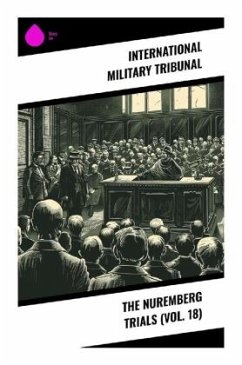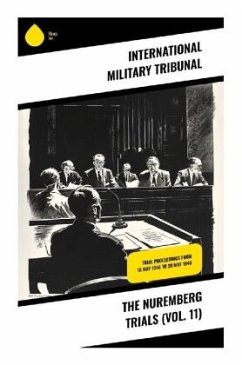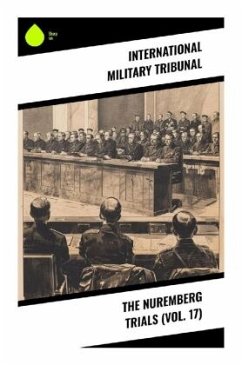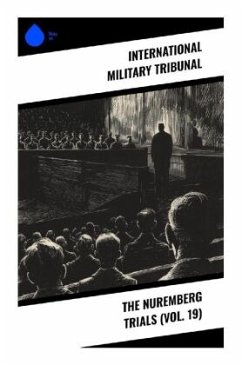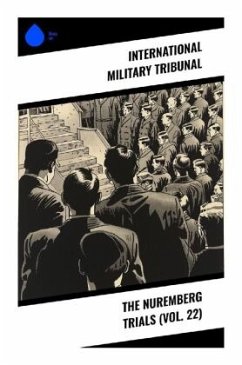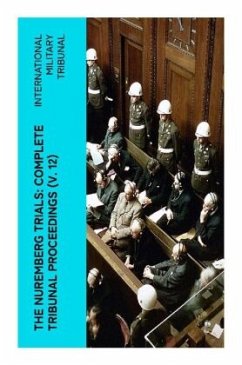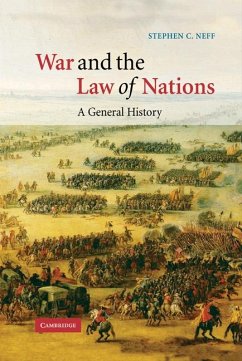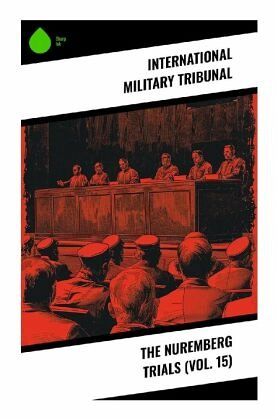
The Nuremberg Trials (Vol. 15)
Versandkostenfrei!
Versandfertig in 6-10 Tagen
22,70 €
inkl. MwSt.

PAYBACK Punkte
0 °P sammeln!
The Nuremberg Trials (Vol. 15) stands as a seminal document in legal and historical scholarship, chronicling the proceedings of the groundbreaking post-World War II tribunal that prosecuted prominent leaders of Nazi Germany. This volume encompasses verbatim transcripts, legal arguments, and testimonies, offering profound insights into the complexities of international law, human rights, and the moral imperatives of justice. Written in a concise yet authoritative style, it reflects a pivotal moment in the evolution of international law, illustrating the tension between justice and vengeance ami...
The Nuremberg Trials (Vol. 15) stands as a seminal document in legal and historical scholarship, chronicling the proceedings of the groundbreaking post-World War II tribunal that prosecuted prominent leaders of Nazi Germany. This volume encompasses verbatim transcripts, legal arguments, and testimonies, offering profound insights into the complexities of international law, human rights, and the moral imperatives of justice. Written in a concise yet authoritative style, it reflects a pivotal moment in the evolution of international law, illustrating the tension between justice and vengeance amid the backdrop of unprecedented atrocities. The meticulous documentation captures not only the legal prowess of the prosecutors but also the chilling account of the defendants' rationalizations, providing a balanced narrative that remains vital for contemporary discourse on accountability and reconciliation. The International Military Tribunal, a coalition of Allied powers, aimed to address and document the horrors of the Holocaust and wartime crimes. Comprised of distinguished judges and legal experts from various nations, this monumental undertaking was fueled by a shared commitment to prevent future genocides and establish a precedent for international justice. The Tribunal reflects the urgent post-war ethos that called for a reckoning with aggression, genocide, and the moral failings of political leadership, deeply influencing future legal frameworks and human rights legislation. The Nuremberg Trials (Vol. 15) is indispensable for scholars, students, and anyone keen to understand the underpinnings of modern legal systems. Its rigorous approach to documenting the trials serves as both a historical record and a cautionary tale about the fragility of justice in the face of tyranny. Whether for academic study or personal interest, this volume is essential for grasping the legacy of the Nuremberg Trials and their profound implications for global human rights.



